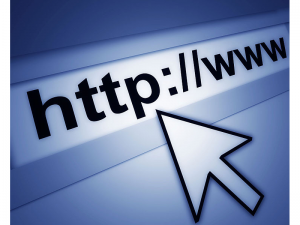
There has been much hand-wringing about the supposed demise of so-called “Net Neutrality”. The recent DC circuit Appeals Court decision – Verizon v FCC struck down the FCC’s 2010 attempt to implement “Net Neutrality” via the infamous “open internet order“.
The court got this one right. The last paragraph of the appeals court decision sums up what the FCC order was about, and why the court made the right decision:
“This regulation essentially provides an economic preference to a politically powerful constituency, a constituency that, as is true of typical rent seekers, wishes protection against market forces. The Commission does not have authority to grant such a favor.”
Those who believe that government regulators and “activists” can do a better job managing resources than consumers and vendors are unhappy with the decision. These activists have called it the end of the internet as we know it.
These critics are wrong.
Contrary to popular belief, “the internet” is not a single “thing”. It is a collection of servers, software, databases, communication links, and networks, all of which must be functional before we can go to our computers and “browse the web”.
The basic idea of “net neutrality” is that all data on the internet are somehow “equal” and that “neutrality” should be enforced by law. The term “non-discrimination” is frequently invoked. The activists predict doom for the internet if carriers are permitted to charge different amounts for different data streams or faster “lanes” for data.
Even a cursory examination of the claims of “net neutrality” proponents shows them to be false. The fact is that the carriers have been “discriminating” since the beginning. We already pay different amounts for different “speeds”. We may have cable or DSL or a wireless internet provider. Providers already do extensive filtering of content for home internet users, to shield users from spam and malware. Providers often block certain internet services, such as outgoing direct email ports, to prevent spammers from using their networks. Commercial networks and big users (like NetFlix) pay each other for certain network usage. All of this is perfectly normal. When disputes arise, those involved are free to manage the complaints to find the best balance between customer satisfaction, network security, and economic efficiency. This is as it should be.
The imposition of the “open internet order” would have required the FCC to decide exactly which practices amounted to “discrimination”, and which network “management” practices were permitted. At minimum, enforcement of the order would have inserted FCC bureaucrats into the technical details of network management. Denials of proponents notwithstanding, “net neutrality” rules would give the FCC the power to choose what traffic was “equal” on the net. In short, it would give the FCC the power to censor the net.
No one knows what this enforcement would have meant, but I agree with its opponents that it would have stunted growth and innovation in the internet sphere. There is no doubt in my mind that the insertion of the FCC into conflicts would shift the battleground from the marketplaces to the courts, guaranteeing slower resolutions, laden with politics, and copious billable attorney hours.
It is important to emphasize that almost all of “the internet” is privately built with investment capital, by profit-seeking enterprises. The myth that the internet was “invented” by government agencies is just that – a myth. It is true that there were government grants that played a part in development of TCP/IP, but the role those grants played in the total picture is miniscule. (Read the Wikipedia article about internet development carefully, and see the tiny role played by the public sector in its amazing development.) “The internet” did not even exist 40 years ago, was available only to institutions 20 years ago, and has only become generally useful in the last 10. Its growth and maturity, and the phenomenal advances in technology in every part of “the net” are a monument to the power of markets to bring the most good to the most people faster than any “planned” effort could have dreamed. Would this have happened with bureaucrats looking over the shoulders of the internet entrepreneurs?
The push for “Net Neutrality” has come with some high-sounding words, but behind the words is an old story – that of the entrenched businesses manipulating the levers of power to their own advantage. For Google and the big players driving “net neutrality”, this is about cementing a competitive advantage worth serious money.
Economists call this regulatory capture, and should not be the future of “the internet”.

